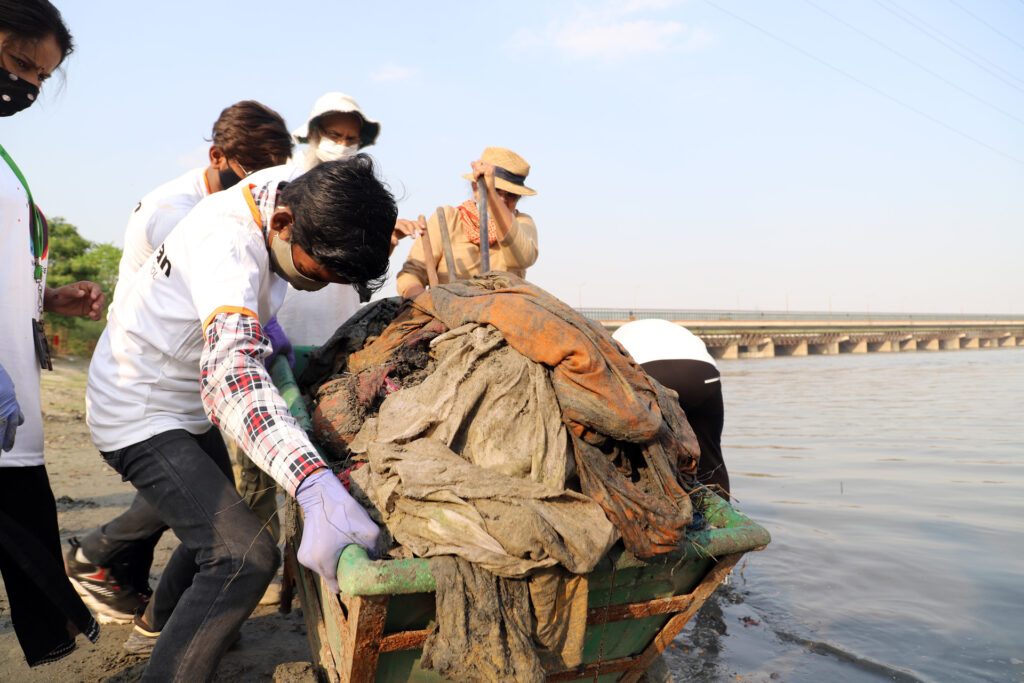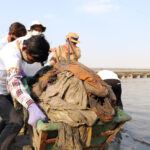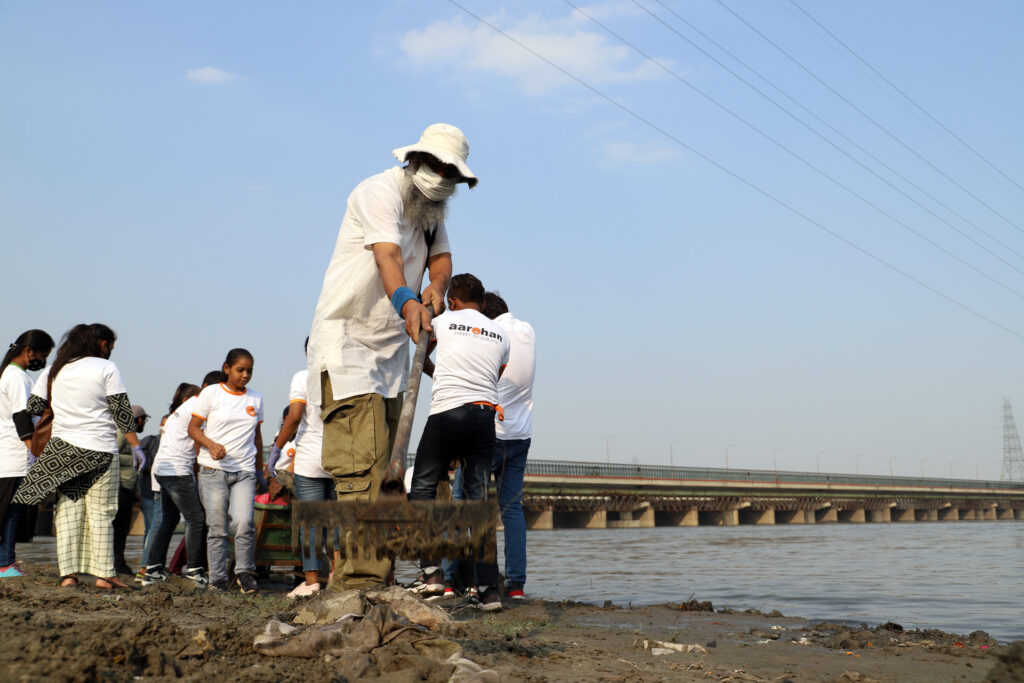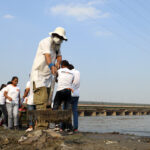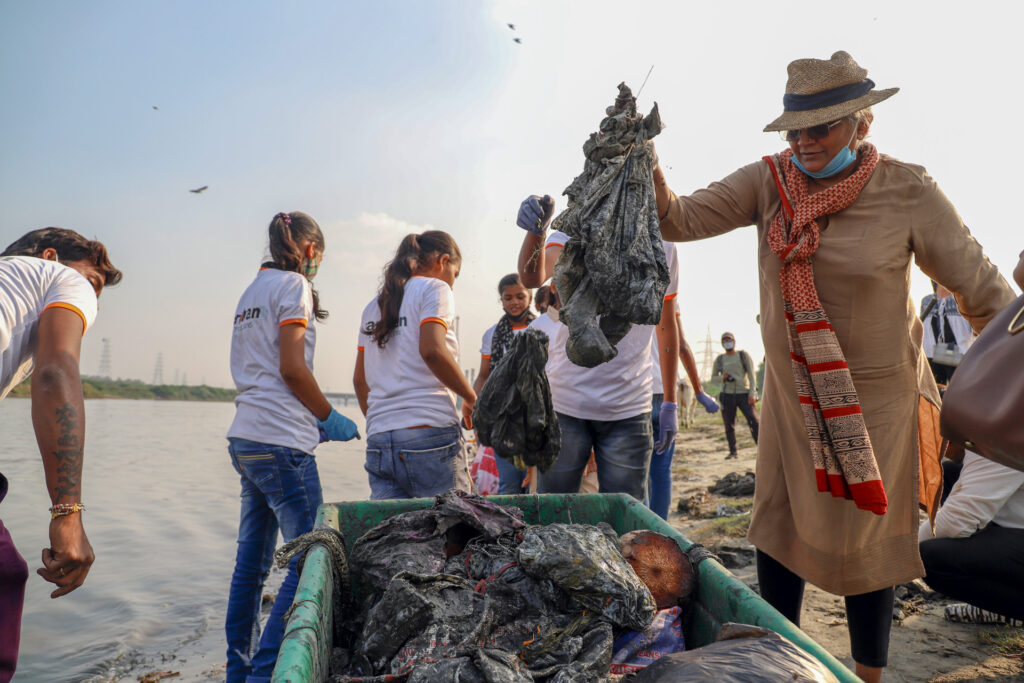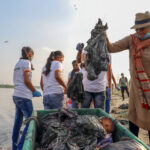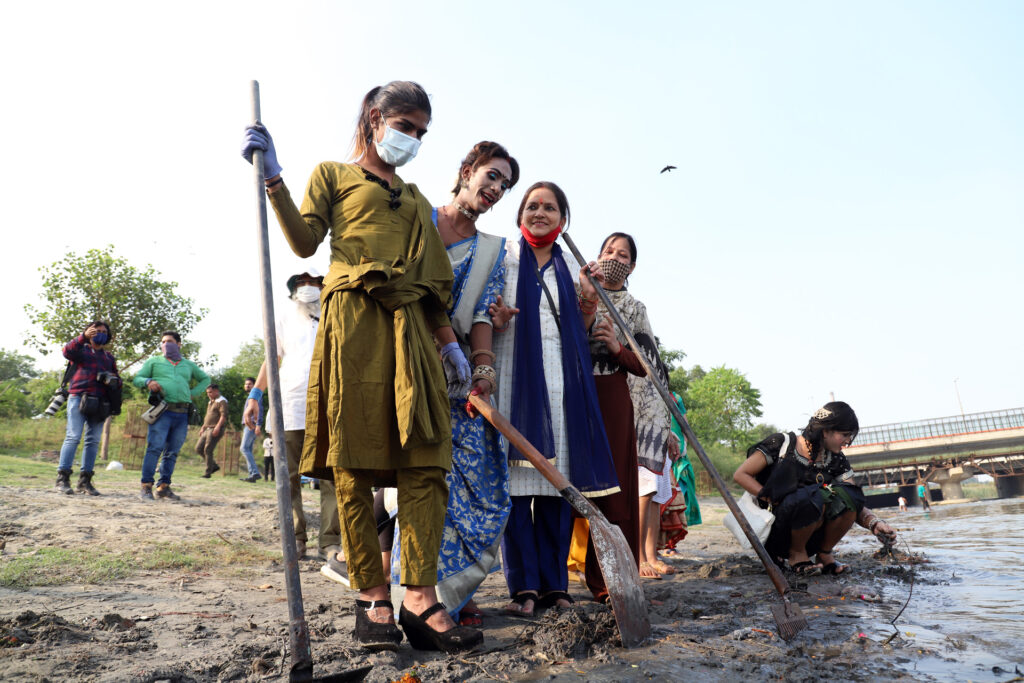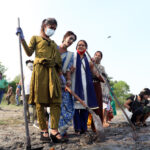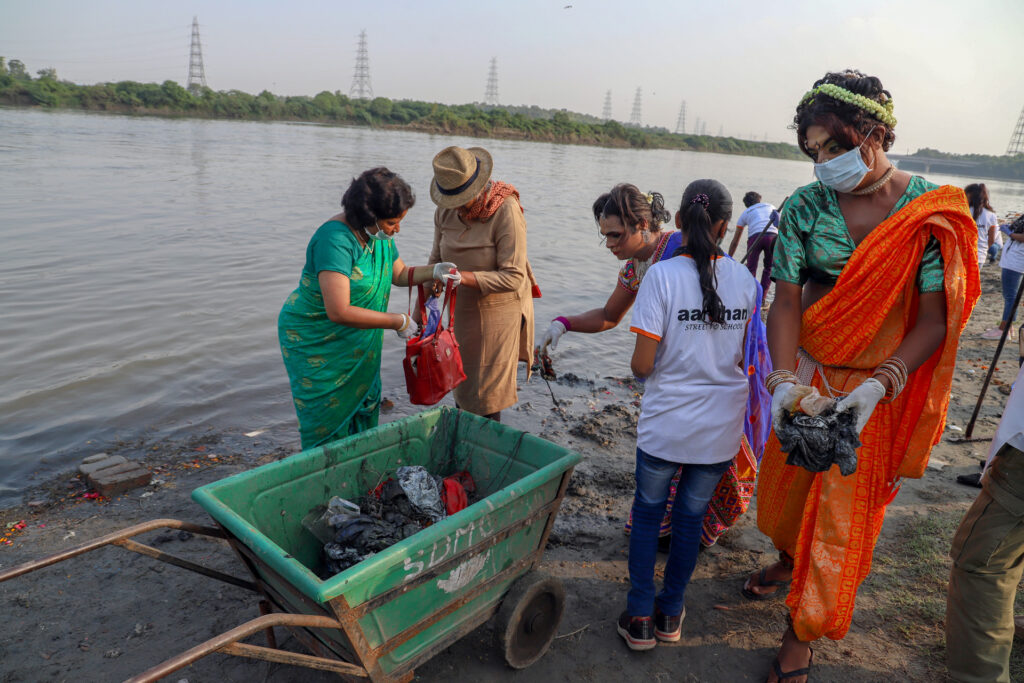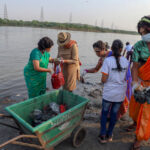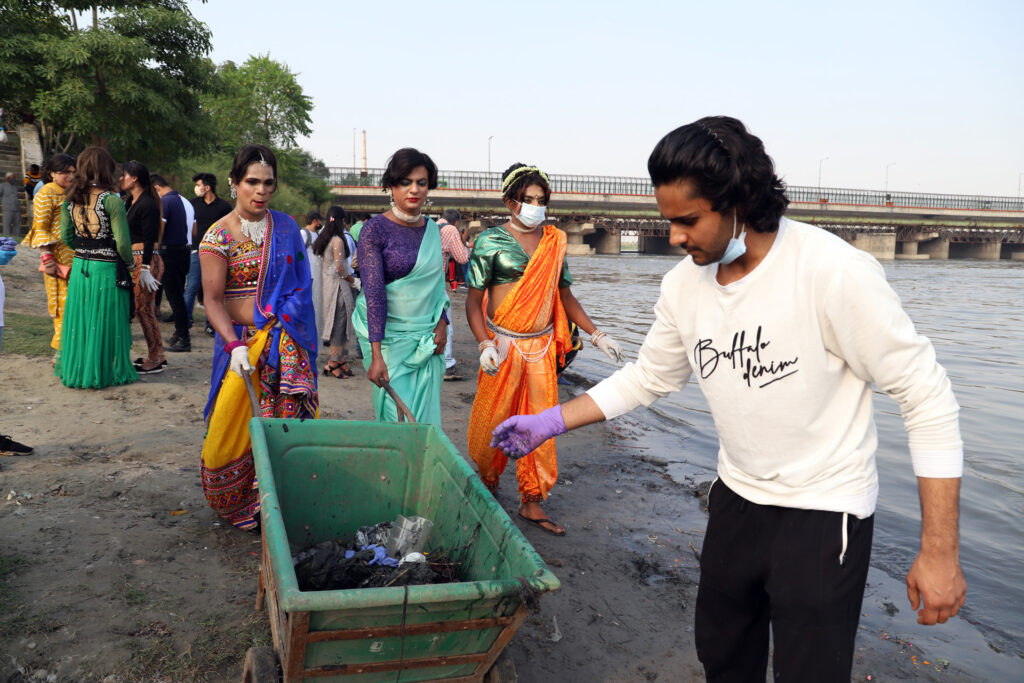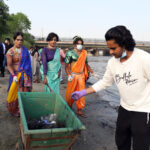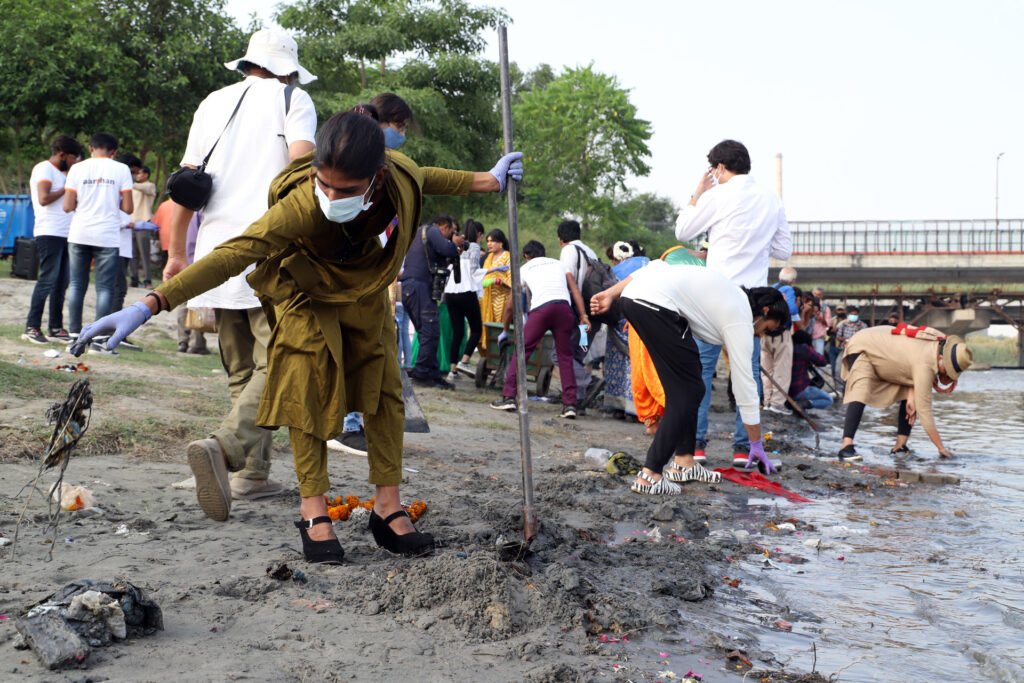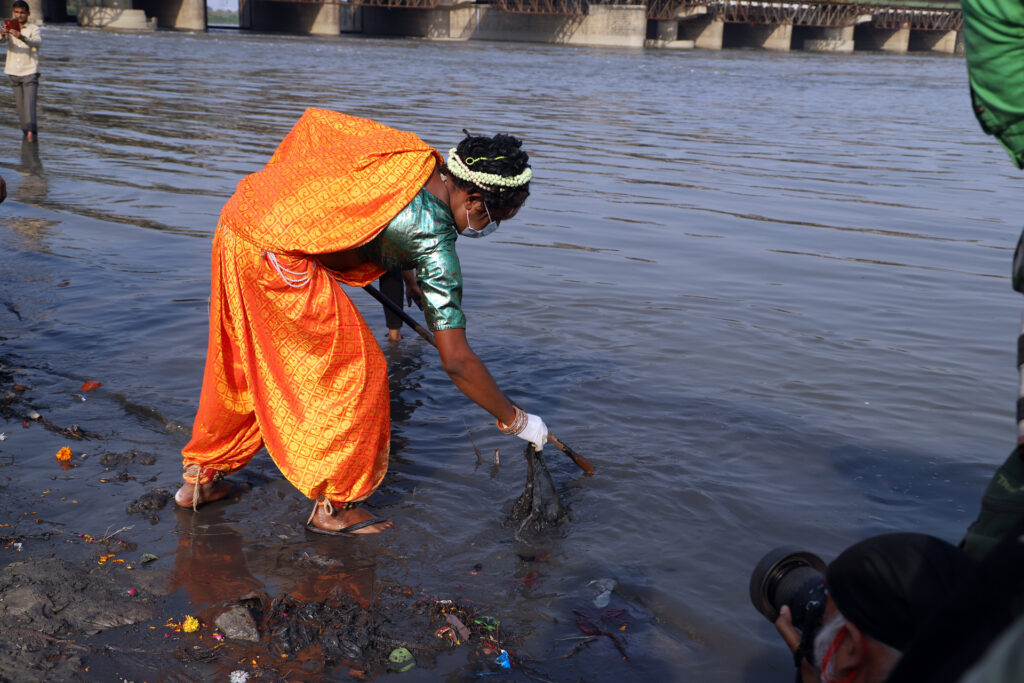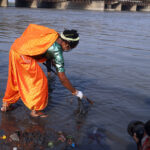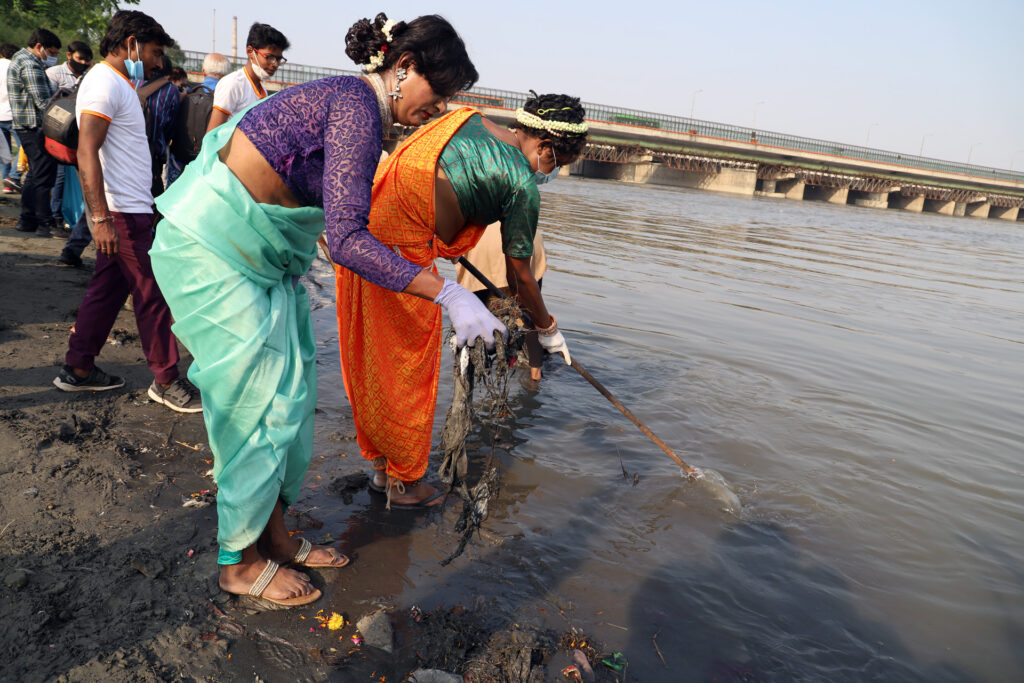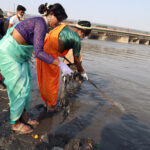Delhi’s transgenders lend helping hand to Yamuna clean up
On Saturday, Delhi-based NGO Aarohan came together with volunteers from AIIMS, Delhi Police and organisations like ISKCON and the Lahar Foundation to conduct a cleanup of the Yamuna River at ITO Chhat Ghat. The cleanup is an annual event and this year Aarohan, along with its students, specially invited the transgender community in New Delhi to participate in the cleanup and spread awareness.
“Our main objective is to create awareness about global warming and climate change. The volunteers here want to send a message that saving the environment, fixing water pollution, this is all interdependent in generating a clean and healthy ecosystem,” Rani Patel, president and founder at Aarohan, tells Media India Group.
“We do not want to wait for this epidemic to spread like the Covid-19 pandemic did. We want our youngsters and transgender people of Delhi to be mindful of how damaging plastic waste can be,” she adds.
Alina (earlier known as Raj), the manager of the programme, which is a collaboration between Aarohan and the Delhi State AIDS Control Society in Mangolpuri, tells Media India Group that such activities will only be fruitful in the long run if sustained efforts are made.
“We need to make everyone around us aware. In our own localities where we stay, we have to teach people that plastic packaging is harmful. Even if something comes in a plastic packaging, it should not just be thrown anywhere, which we always see happening. This is not a one-day job, but if it is done continuously, then eventually our country can truly be called Swachh Bharat (Clean India),” Alina tells Media India Group.
She also emphasises the importance of including all sections of society, regardless of gender, sexuality or religion, in the process of cleaning because the future of India’s rivers does not depend only on a few.
“Today, this is being done by transgenders. We also live in society and exist together, whether it is women, men, or transgenders like us. Somehow, the rest of society considers us different. But we want to say that we are no different from them. That is why we have come together to clean the Yamuna,” she says.
(Photos: Aman Kanojiya; Text: Susanti Sarkar)

